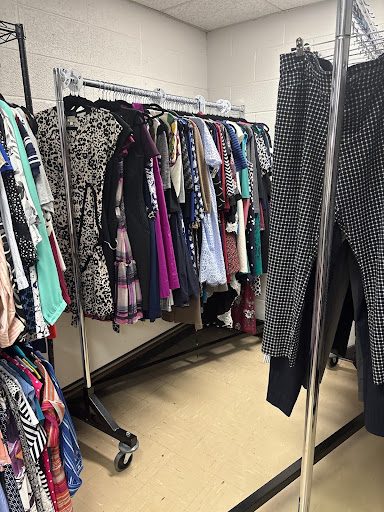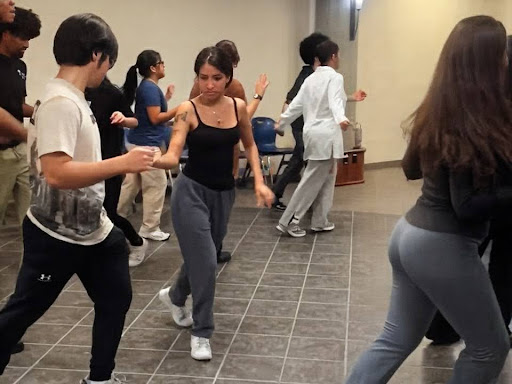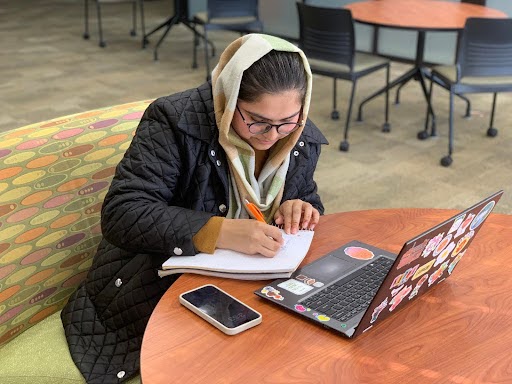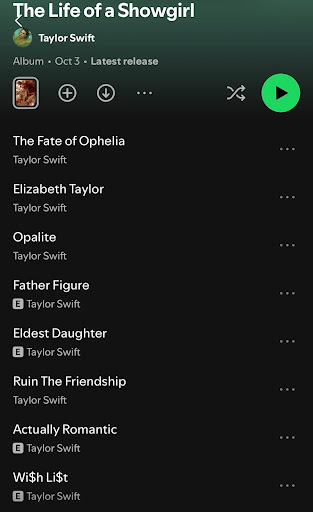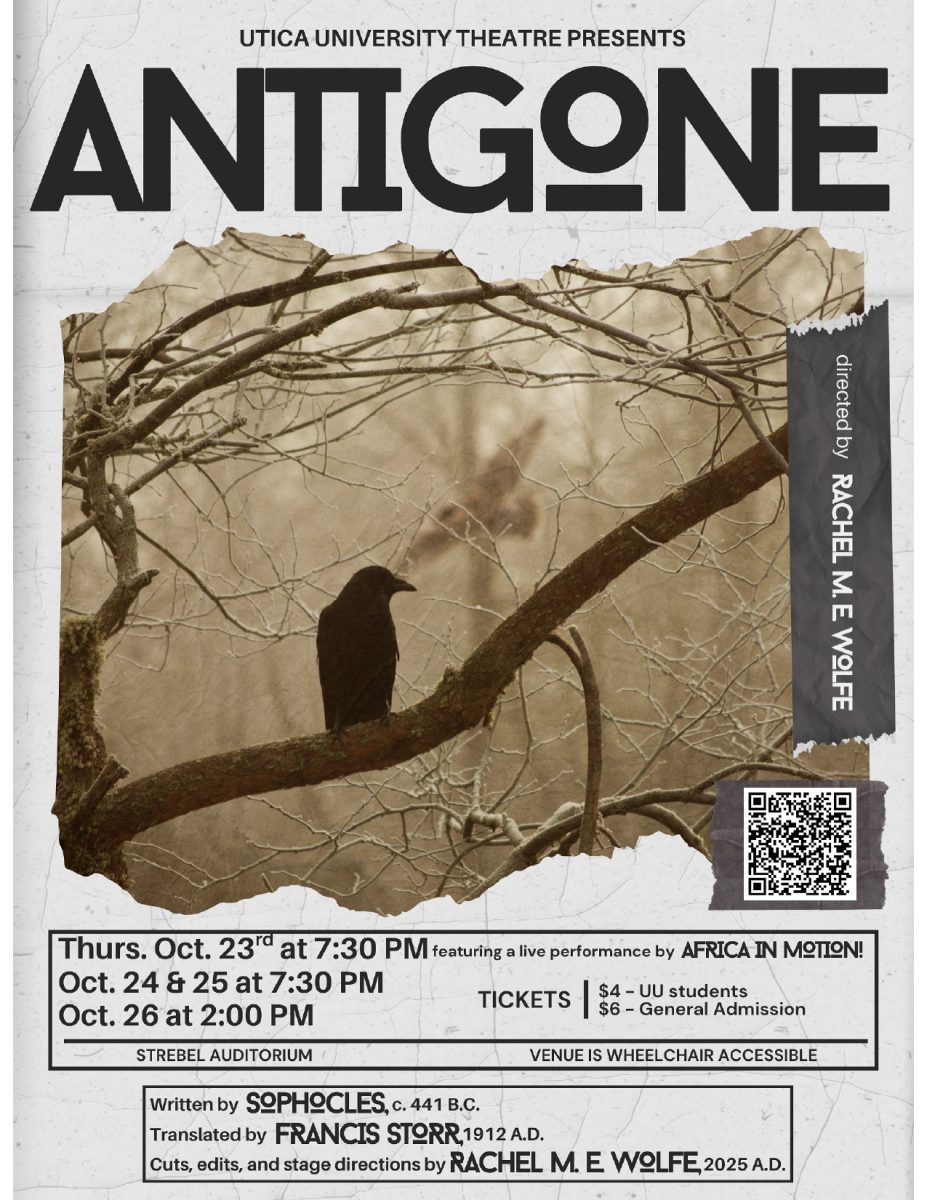Jamaican national flag removed from Student Center
National flags hang from the wall in the Strebel Student Center.
November 2, 2022
Current and former students feel slighted by flag removal
The removal of the Jamaican flag in the Ralph F. Strebel Student Center has caused a string of confusion and concerns among students on campus. In the student center, a wide variety of national flags are showcased throughout the walls of the Strebel to commemorate those from different cultural backgrounds. However, the recent removal of the Jamaican flag has raised questions for many on campus.
Utica University has 39 national flags that represent students who come from different countries. Before the flags are hung up, a ceremony is held for the students in which their flags are then displayed on the wall. The flags in the Strebel Student Center also represent countries that Utica University has study-abroad connections with.
The Jamaican flag was removed last spring and was replaced with the Egyptian National Flag. The fact that the flag was there then was removed is a concern for students.
Rijah Judah is a junior who comes from a Cuban-Jewish background. Her step-father was born in Jamaica and has lived in America for 10 years while her two teenage brothers who were also born in Jamaica immigrated to the United States in 2019. Judah felt let down by the removal.
“I felt a sense of betrayal and confusion as to what the exact reason could possibly be for the removal of the flag,” Judah said. “Removing the Jamaican flag will for sure have a negative impact on individuals who come from Jamaica and Caribbean backgrounds because it is setting a very negative image and tone.”
Director of Academic Business Development Elizabeth Nassar, who was recently asked to take over some additional responsibilities in the Office of International Education, said that the issue of the flags and what goes up and doesn’t should be student driven.
“One of the things that always impressed me about Utica was the range of cultures that were here and how welcoming everyone was,” Nassar said “What was told to me was that there is a policy at the school that because we only have certain number of space that we put up the flags of countries of people that are [currently] here.”
Nassar said students are making a compelling case that these are not good policies and are not data driven.
“These are all things that I’m trying to figure out as I’m investigating this,” Nassar said. “If any student comes and says that this flag means something to me, we should just put it up. I don’t understand why there is any issue about it. Maybe we should figure out a different way to arrange these so more flags can go up.”
Samantha Barrett, a ‘22 graduate, grew up solely around Jamaican culture as her entire family besides her migrated to the United States. After coming to Utica, she was surprised by the population of minorities and was happy to find others of Caribbean descent to whom she could relate.
According to Barrett, Jamaican and Caribbean culture has a significant impact on campus.
“Speaking from a minority point of view and from a Jamaican American perspective, I feel Jamaican and Caribbean culture has a big impact on campus,” Barrett said. “COVID ruined a lot of campus activity resulting in lots of organizations dying, including Caribbean Connections Association, where a lot of minorities Caribbean and non-Caribbean gathered to immerse in the culture and share it with the campus.”
Barrett was shocked to hear that the flag was removed and viewed it as a slap in the face for students of Jamaican culture, but to her that didn’t come as a surprise.
“I think the flag was taken down because the people in charge of representing the different cultures on campus are not paying attention,” Barrett said. “If everyone else can have their flag up there, why does ours have to be taken down? I think they think that nobody on this campus represents Jamaican culture. If they think that about the Jamaican flag, what will happen to the other flags in the Caribbean diaspora?”
According to Judah, living in a multicultural home has both benefited her and given her the opportunity to make connections with others who are from Jamaica and learn about different cultural aspects.
When Judah first saw the flags hung up in Strebel, it created a sense of pride and unity because of the wide variety of flags.
“Attending a university that has a campus of predominantly white individuals, as a person from a different walk of life, I can speak for the majority of non-caucasian people that we seek out any little symbol, poster or event that dedicates some support to our culture,” Judah said.
Acknowledging the different cultures on campus is important, especially for students who are underrepresented and come from minority backgrounds.
“This removal will definitely cause the opinions of individuals to shift toward a feeling of being unsupported and unseen, not valued as a Caribbean person within the university community,” Judah said. “Recognition and acknowledgment to all cultures on campus because the ratio to whites and non-whites is already so disproportionate that any little recognition, such as a flag being hung, may not be something meaningful for some but it’s a huge illustration of care and value for Caribbean students, faculty and staff.”
The removal of the Jamaican flag has had a significant impact on those from the Caribbean and Jamaican backgrounds causing many to believe that the institution should put plans in place to better understand and acknowledge those of different ethnicities and cultural backgrounds.
“I don’t think the flag should have been taken down in the first place because it is not fair to us that other students can look up and see their flag,” Barrett said. “We’re from a small community that represents home, something that we were used to. This school preaches diversity but does not uphold its words with actions. This school is far from the diverse community it preaches itself to be. The minorities on this campus stick together in a sense. I think people need to look at it from our perspective and see how it feels to be alone because nobody around you comes from your background nor acknowledges it.”
Updates will follow as soon as they become available.


